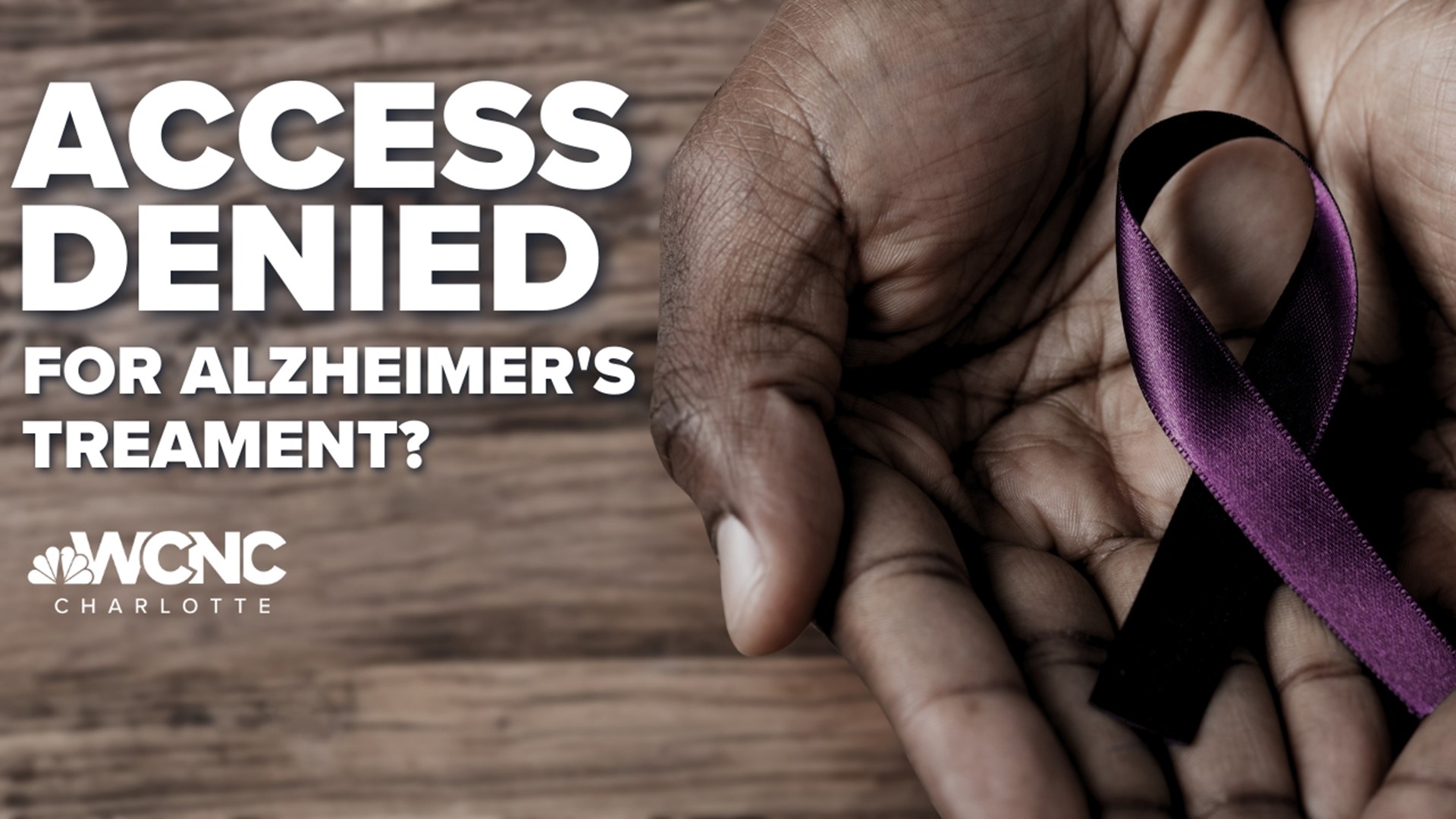CLOVER, S.C. — A promising new drug could give people living with early-onset Alzheimer's more quality time with loved ones.
The FDA approved it but Medicare won’t pay for it, making it too expensive for most patients. This is an unprecedented decision that people living with Alzheimer's say is robbing them of precious time.
WCNC Charlotte is always asking "where's the money?" If you need help, reach out to WCNC Charlotte by emailing money@wcnc.com.
Going through a box of photos in her Clover, South Carolina living room, Laurie Waters cherishes the memories.
"This is our wedding photo," she said, smiling.
Waters still remembers most things, most of the time. But not everything -- not always.


In a momentary lapse, this proud grandmother can't remember how many grandchildren she has.
Sometimes she says, she just forgets things.
"People I had known for years, I didn't know their names," Waters said. "One time I left a pie in the oven and almost burnt the house down... I've had those days when all of a sudden I’m at Food Lion and I don't know how I got there. It's the scariest thing that can ever happen to you."
She was just 52 when her doctor told her tests confirmed she had Alzheimer’s.
"I said how long do I have before I’m gone?" she recalled. "He said normally with a young diagnosis, eight to 10 years, and I said, 'OK what are we going to do?'"
That was six years ago.
Waters was thrilled earlier this year when the FDA approved groundbreaking new drugs that have shown they slow the progression of the disease in people with early-onset Alzheimer’s.
"I was so excited -- we had been fighting for this medication to get approved."
But her excitement quickly faded when she learned she wouldn’t be able to get the medication.
For the first time ever, Medicare is denying coverage of an FDA-approved drug, saying they need more proof the new Alzheimer’s drugs are “reasonable and necessary.”
"It's heartbreaking, frustrating and it's unacceptable," the Alzheimer's Association regional director for the Carolinas, Katherine Lambert, said. "This is the first time in history that an FDA-approved drug is not covered for a fatal illness for which there are no other treatments."
"It infuriates me that they can have that control, and if I put the money out myself my husband will lose the house, our savings -- we'll lose everything," Waters added.
The drugs cost $26,000 a year.
"I know I can't afford it," Waters said.
She's already burned through her 401K, spending $80,000 on medications that simply treat her symptoms, but don’t slow the disease like the new drug.
"To me, it's criminal," Waters said.
Last month, Waters was part of a group at the White House fighting for coverage.
"The decision makes this a drug that only the wealthiest can afford," Lambert said.
Waters is desperate.
"I actually contemplated suicide," she said. "Everything I read about Alzheimer's and the effect on my family, I didn't want that. We know we're dying, why not give us extra time? Let us have that time with our family."
It's important to note, the VA announced they will be covering the drugs for veterans. Lambert points out that while this is a good thing, the coverage doesn’t start until age 65 -- typically years after patients should start on this drug.
According to the Alzheimer’s Association, there are an estimated 6.7 million Americans age 65 and older living with Alzheimer's in 2023 -- one in nine people 65 and older.
In North Carolina alone, there are more than 180,000 people living with Alzheimer’s and more than 356,000 family members and friends caring for them, according to the Alzheimer’s Association.
Support from the Alzheimer’s Association is available 24/7 for individuals with Alzheimer’s disease and their caregivers at 800-272-3900, in addition to free education and advocacy programs available in-person and online.
Contact Michelle Boudin at mboudin@wcnc.com and follow her on Facebook, Twitter and Instagram.
If you or a loved one are facing thoughts of suicide or self-harm, there is help readily available. You can call Suicide and Crisis Lifeline at 988 or chat with them online. There are also resources in North Carolina available here and in South Carolina available here.

